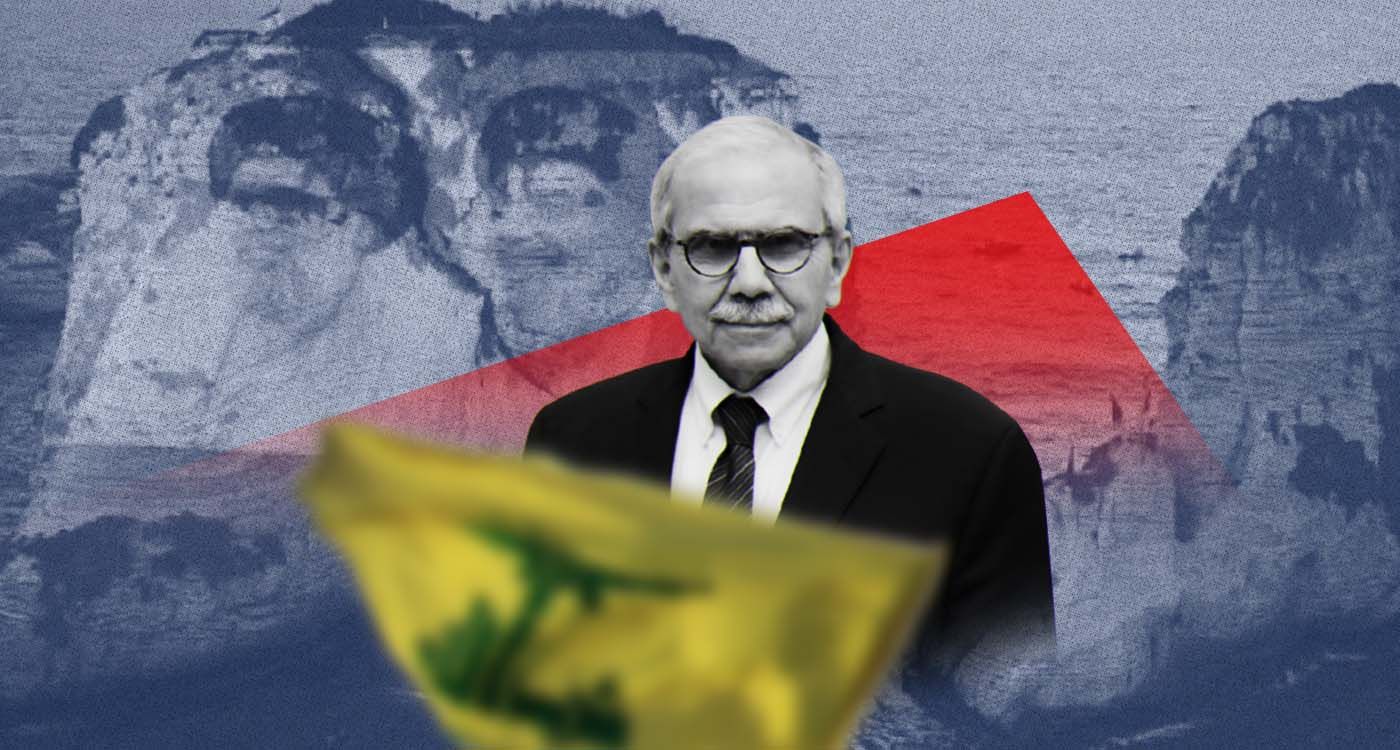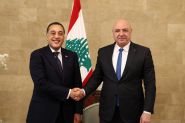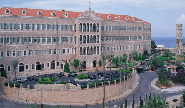
In a bold display of power that lays bare Lebanon’s fragile balance of forces, Hezbollah flouted every law and directive, trampling both state decisions and promises to its own allies.
On Thursday evening, despite an explicit ban from Beirut Governor Marwan Abboud, the Pigeon Rock in Raouche, an iconic national and tourist landmark, was illuminated with portraits of Hassan Nasrallah and Hashem Safieddine to commemorate the anniversaries of their assassinations. The former Hezbollah Secretary-General and his intended successor were both killed in separate Israeli strikes on Beirut’s southern suburbs – the first on September 27, 2024, the second on October 3, 2024 – dates now etched as symbols of the end of the Nasrallah era.
The death of the former leader unsettled Hezbollah’s internal balance but did not slow the organization. Under Iran’s influence, it continues to maintain its grip, reorganize its networks, and assert strategic continuity through shadowy figures. All eyes are now on Wafiq Safa.
The head of Hezbollah’s Liaison and Coordination Unit, Safa survived an Israeli strike in October 2024 and has since emerged as the quiet heir to the group’s militia power – a power neither the state nor Hezbollah’s longtime political partners seem able to rein in.
He dominated Thursday’s ceremony, orchestrating every detail from mobilizing supporters to staging the dramatic lighting that defied official bans. Safa has moved from keeper of secrets to the central pivot of Hezbollah’s operational and political power in the post-Nasrallah era.
A Direct Challenge to State Institutions
Days before the commemoration, Prime Minister Nawaf Salam issued a circular banning the use of public sites or national monuments without prior authorization. He allowed the memorial gathering but explicitly forbade light projections on Raouche Rock. Governor Abboud relayed the decision, which seemed a compromise but proved entirely ineffective.
When images of Hezbollah leaders appeared on the rock face, the executive branch was humiliated. On Thursday evening, Salam instructed the ministers of Interior, Defense and Justice to pursue those responsible. That move was seen by many as largely symbolic, unlikely to deter the organizers of an event widely believed to have been orchestrated by Safa, Hezbollah’s chief operative.
Even more striking, reports indicate that Salam canceled appointments and suspended his work to signal his indignation – a stance echoed by ministers and MPs who visited him in Kraytem on Friday to show their support. Rather than asserting power, Salam’s actions read as a warning. He is scheduled to meet Defense Minister Michel Menassa, Justice Minister Adel Nassar and Interior Minister Ahmad al-Hajjar at 3 PM, with a public statement expected at 4 PM following an expanded ministerial meeting.
Berri, the Humiliated Ally
Thursday evening’s events also left Parliament Speaker Nabih Berri in a precarious position. As the main channel between Hezbollah and the Lebanese state and international community, Berri, the leader of the Amal movement and a longtime Hezbollah ally, had given assurances that Raouche would not be illuminated. He also promised a gathering limited to 500 supporters with no traffic disruptions. None of these commitments were honored.
Berri’s assurances were publicly disregarded, demonstrating that Hezbollah no longer hesitates to humiliate even its closest partners. His credibility, already strained, suffered further. Observers note that the events of Thursday, September 25, underscore the state’s impotence against a group operating as an autonomous militia and highlight the shift of Hezbollah’s power toward security cadres like Safa, who was omnipresent during the ceremony. The Pigeon Rock of Raouche functioned not merely as a projection screen but as a stark symbol of the absence of civil authority.
In a capital that seeks to showcase Lebanon, the message was clear: official bans mean nothing when confronted by an armed militia. Hezbollah transformed the Pigeon Rock into a political stage, reducing government decisions to hollow gestures and asserting who holds the ultimate authority.
The failure to enforce directives exposes the state’s persistent weakness and its inability to implement decisions, from a simple ban on image projections to exclusive control over arms. This leaves Hezbollah free to set its own rules, flouting public authority while giving neighboring Israel additional pretexts to maintain forces at five strategic points and continue its strikes in Lebanon.




Comments